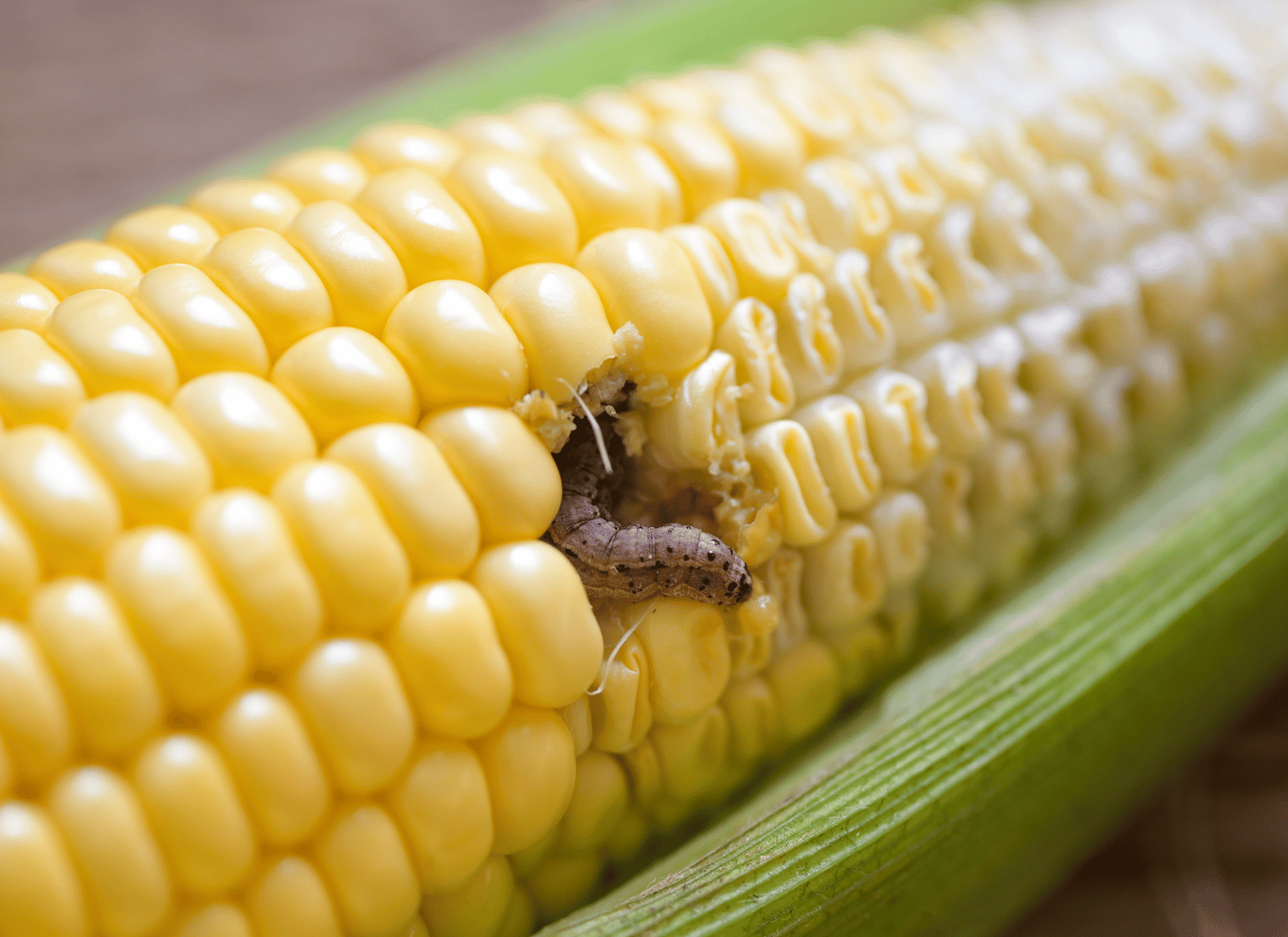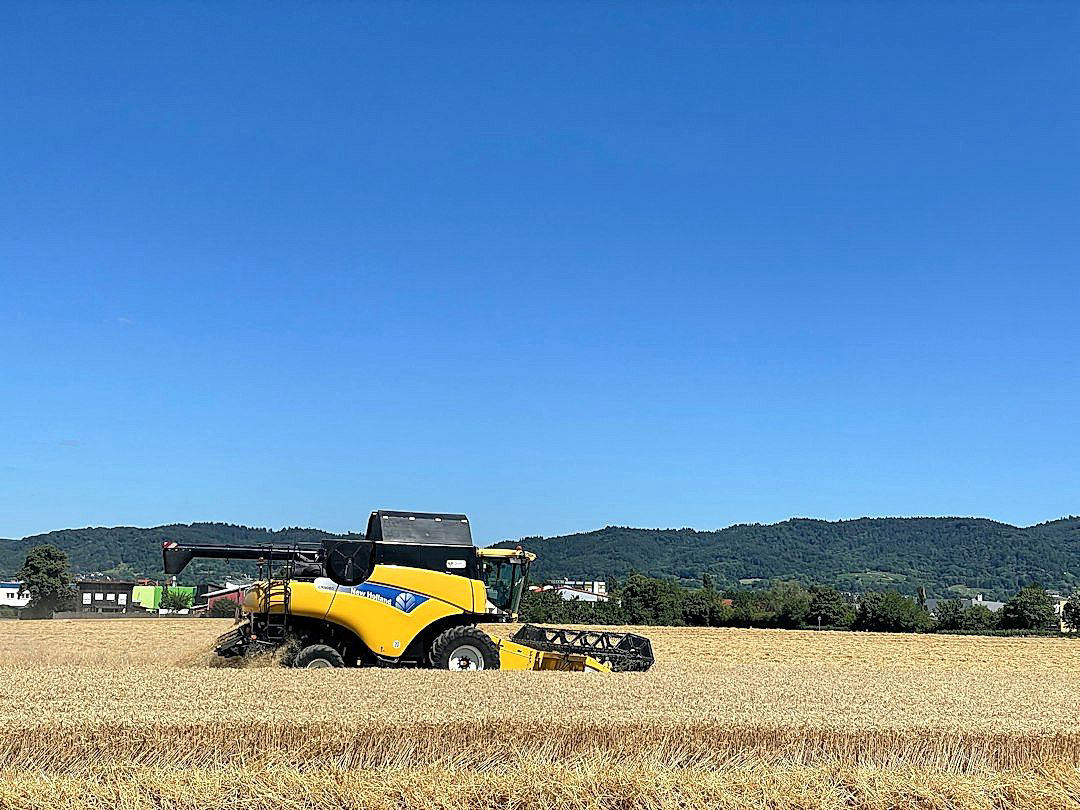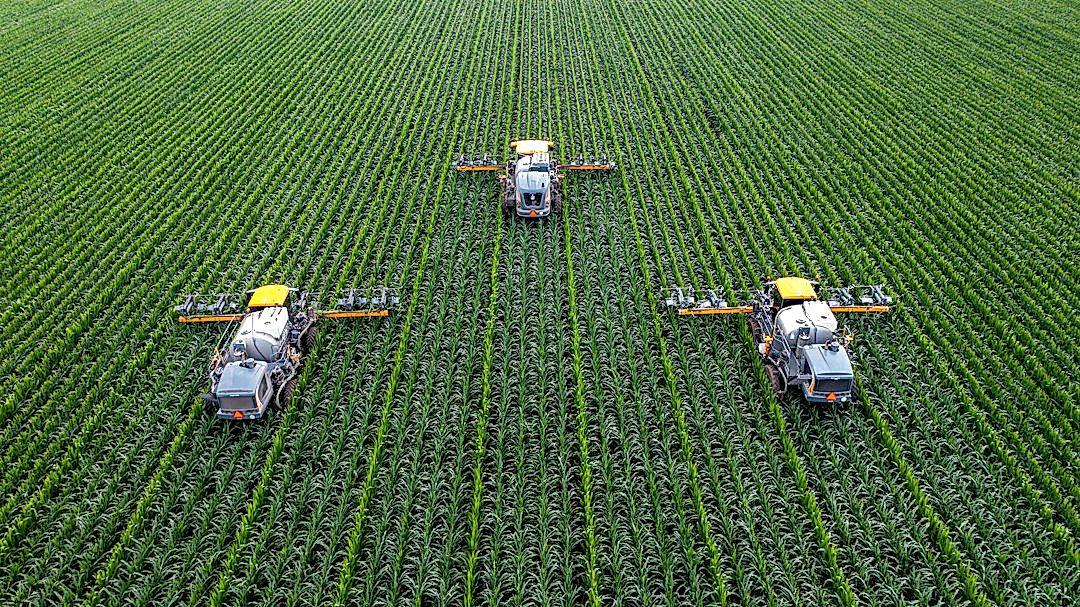Understanding where our food comes from is of vital importance, now more than ever.
A significant challenge in the agricultural industry is ensuring transparency and accountability in the food supply chain.
Blockchain technology might offer a substantial solution for this pressing issue.
This innovative system allows every transaction to be documented, creating a decentralized, verifiable record from seed to supermarket.
In this blog post, we will delve into how blockchain can revolutionize produce traceability, creating a more transparent and safe food system for all.
This isn’t just about technology; it’s about safeguarding our food supply and the health of consumers worldwide.
Contents
Blockchain Solutions For Produce Traceability
1. IBM Food Trust
The IBM Food Trust is a blockchain-based technology platform aimed at fostering a more transparent and efficient global food supply chain.
The platform was developed by IBM in collaboration with a number of leading food industry companies.
One of the main goals of this initiative is to enhance food traceability, allowing consumers to know exactly where their food comes from.
This is achieved by leveraging the decentralized nature of blockchain technology, which allows for a secure and unalterable record of all transactions and movements within the supply chain.
Each participating entity – be it a farmer, processor, distributor, retailer or consumer – has a unique digital identity on this blockchain.
They can use this identity to record and access information about every food item’s journey, from its origin to the end consumer, contributing to unprecedented traceability and transparency in the food supply chain.
Beyond traceability, the IBM Food Trust also provides a platform for sharing other important food-related information.
For example, it can host data on food quality, safety certifications, and environmental impact, amongst other things.
All this information is made available in real-time, ensuring that everyone in the chain can make quick and informed decisions.
This in turn can lead to reduce waste, increase efficiency and improve the overall sustainability of the food industry.
A notable implementation of the IBM Food Trust is by the world-renowned retail giant, Walmart.
Walmart has utilized this blockchain solution to trace a variety of food products, including leafy greens and mangoes, across their vast global food supply network.
The successful deployment has resulted in drastically reduced times for food traceability, from nearly a week to just 2.2 seconds.
That is the power of the IBM Food Trust, a groundbreaking blockchain solution for produce traceability.
By leveraging blockchain technology, this platform has the potential to revolutionize the way we interact with and understand our food, delivering on the promise of a more transparent, efficient and sustainable food supply chain.
2. VeChain’s ToolChain
Recognized as a leading blockchain solution for tracking and tracing, the VeChain’s ToolChain proves pivotal in ensuring produce traceability.
The robustness of the platform is characterized by its end-to-end transparency, providing a secure and reliable data tracking system.
Furthermore, it utilizes unique digital identities for each product, making it nearly impossible to falsify or tamper.
VeChain’s ToolChain leverages the decentralized nature of blockchain technology to create an immutable record of a product’s journey, from farm to consumer.
It also integrates advanced IoT technologies and sensor data to record integral parameters that sustain the quality of produce, like temperature and humidity, throughout the journey.
Not only does this aid in ensuring product safety and freshness, but it also offers a quality assurance benefit to consumers.
This, in turn, builds consumer trust and boosts brand reputation.
Equally crucial, VeChain’s ToolChain empowers every stakeholder in the supply chain with the ability to authenticate and validate the information.
Ranging from producers, distributors, retailers, to final consumers, each party can instantly access the complete history of the product just by scanning the unique QR code assigned to it.
Moreover, VeChain’s ToolChain imparts environmental responsibility by promoting traceability of origin, reducing food waste and combating fraudulent claims.
It has already been adopted by a plethora of enterprises across the globe, underlining the system’s effectiveness and reliability.
The popularity of VeChain’s ToolChain is underpinned by its ability to revamp conventional supply chain systems into a cohesive, transparent and secure infrastructure that benefits both businesses and customers.
The inclusive design of the VeChain’s ToolChain platform enables companies of all scales and industries to implement blockchain solutions without requiring significant technical expertise.
This scalability and versatility, combined with the undeniable benefits it yields for produce traceability, makes VeChain’s ToolChain a viable and effective blockchain solution for the agricultural and food sector.
Thus, as the world seeks to overcome the challenges of product misrepresentation, consumer mistrust, and food waste, the incorporation of VeChain’s ToolChain into the broader landscape of food supply chains is of immense value.
On a larger scale, the adoption and implementation of VeChain’s ToolChain in produce sectors across the globe could have profound implications, paving the way for more sustainable, transparent and secure food systems worldwide.
3. Oracle Blockchain Platform
Among the pioneers in the domain of blockchain technology, the Oracle Blockchain Platform has been instrumental in transforming the produce traceability landscape.
Known for its unassailable encryption and decentralization features, the platform ensures that every piece of information pertaining to a product’s lifecycle is securely logged and authenticated.
The Oracle Blockchain Platform can effectively keep track of food items from their point of origin all the way to the consumer’s table.
This technology primarily uses innovative tracking methods and cutting-edge cryptography to ensure that the data is safe and verifiable.
Oracle’s Blockchain Platform has been constructed on Hyperledger Fabric which is a collaborative effort involving several large companies who are dedicated to advancing cross-industry blockchain technologies.
One of the major attractions that sets this platform apart is its ability to integrate seamlessly with Oracle’s other cloud-based solutions.
By integrating IoT and blockchain technologies, the Oracle Blockchain Platform can automate the data capturing process, thereby increasing the speed and accuracy of tracking information.
This platform is also potent in marking a big shift from the often complicated and tedious conventional processes to a more direct and efficient means of tracking and verifying products.
Not only does it assist in enhancing the transparency of the supply chain, but it also helps in building the trust of the consumers in the quality of produce they purchase.
One of the paramount features of this platform is the ‘Oracle Blockchain Application Cloud’ which provides real-time, end-to-end tracking and visibility of product lifecycle.
This feature is aimed towards providing businesses with unparalleled traceability and transparency in their supply chains.
Moreover, this platform is also compatible with multiple Oracle Cloud applications, thereby allowing companies to directly access the blockchain network from their existing Oracle Cloud applications.
The Oracle Blockchain Platform allows organizations to conduct rapid experimentation, iterate and deploy proof of concept (POC) projects and remove blockchain complexity to accelerate business results.
It is beneficial for all parties involved in the supply chain, including producers, distributors, retailers and consumers, providing them with certainty and peace of mind about the products they handle or consume.
Thus, Oracle Blockchain Platform serves to reduce food frauds, recalls and inefficiencies by creating a reliable and secure system for tracking and verifying food products.
4. TE-FOOD’s FoodChain
Among the numerous blockchain solutions aiming to improve produce traceability, TE-FOOD’s FoodChain is an innovative tool designed specifically for this role.
It presents a comprehensive, end-to-end solution that focuses on fresh food and livestock, propelling the potential for ensuring traceability in various stages of the supply chain.
The platform brings together multiple stakeholders including farmers, wholesalers, retailers and consumers, facilitating a transparent and efficient movement of produce from farm to table.
In order to provide valid and traceable information about the food’s journey, the system incorporates multiple digital identification technologies such as QR codes, RFID, and IoT devices.
Their authenticity and data integrity are assured through the blockchain backbone of TE-FOOD, maintaining a high level of confidence through the foodchain.
This information helps the consumers in making informed decisions based on the history and quality of the produce they’re purchasing.
Moreover, it empowers producers and retailers by giving insights into consumer patterns, eventually helping them to optimize the mechanism of production and distribution.
TE-FOOD’s FoodChain system is not just limited to traceability, it also aims at improving food safety and quality by facilitating compliance with international food safety regulations.
The system can effectively help in preventive interventions and systematic recalls in case of food safety issues, thereby protecting the end consumer.
Another significant feature of the platform is the transparency in pricing.
With the use of blockchain, it ensures that all stakeholders are equally informed about the value of goods resulting in a fair and transparent pricing mechanism.
Furthermore, the platform’s scalability allows its application on a global scale, accommodating the needs of both small scale farmers and big multinational food companies.
This adaptability is very crucial in the food industry as the size and requirements of the players are incredibly diverse.
Interestingly, TE-FOOD has also taken the initiative to educate farmers about the use of blockchain in the food industry.
They conduct various workshops and training programs to help farmers understand the benefits of blockchain and how to incorporate it into their systems.
Therefore, aside from enhancing traceability, TE-FOOD’s FoodChain also actively contributes to community involvement and empowerment within the food industry.
5. Ambrosus Network
The Ambrosus Network is a highly advanced blockchain-based ecosystem primarily designed for global supply chain operations.
One of the key aspects of Ambrosus Network is its adept focus on food and pharmaceutical sectors, providing transparent traceability solutions.
This blockchain solution ensures uncompromised security and seamless tracking of produce across the entire value chain.
The core foundation of Ambrosus lies in its combination of IoT and blockchain technologies for enhanced traceability.
Embedded with cutting-edge technology, this network initiates an automated trust system, stimulating greater transparency and accountability.
At its core, the Ambrosus Network handles an array of digital assets that represent real-world commodities.
These assets are tracked and monitored using a variety of IoT devices that collect real-time data.
The hitch-free recording and transmission of this data provides unprecedented real-time visibility into food products’ movement.
Ambrosus Network employs a sophisticated data bonding curve model for its business operations.
This model allows businesses to create digital solutions that suit their specific needs, thus optimized product traceability.
Ambrosus also gives stakeholders the unique opportunity to own their data and control who has access to it.
This high level of data sovereignty enhances trust among all supply chain partners.
Furthermore, the Ambrosus ecosystem fosters an environment of mutual cooperation and trust among different partners in the food supply chain.
It binds the interests of farmers, manufacturers, regulators, and consumers, promoting end-to-end transparency across the supply chain.
Wrapped up in a scalable design, the Ambrosus network derives its strength from the combination of state-of-the-art IoT devices and secure blockchain technology, positioning it as a powerful tool in the world of produce traceability.
6. Ripe.io’s Blockchain Solutions
Ripe.io provides a blockchain-enabled platform that focuses on transforming the food industry through increased transparency and traceability.
This platform addresses issues of food wastage, food safety, and sustainability by ensuring that every player in the food supply chain can confidently track items from farm to fork.
Ripe.io’s technology empowers all participants in the food supply chain, from farmers to end consumers, with a shared, immutable ledger of food data.
Not only does this lead to greater trust and confidence in the food we eat, it also facilitates a functional and efficient food ecosystem.
By acknowledging the growing consumer demand for transparency, Ripe.io is developing blockchain solutions that enable businesses to provide accurate information about the origin and journey of their food products.
One of the distinguishing features of Ripe.io is their capability to integrate Internet of Things (IoT) devices with their blockchain technology.
This combination allows for precise measurements of environmental factors like temperature and humidity, adding another layer of transparency to the provenance of produce.
Adopting Ripe.io’s platform into a business’s food supply chain ultimately leads to an enhanced consumer engagement model.
It allows consumers to make better-informed choices about the food they eat, based on an understanding of where it’s been and how it’s been treated.
Moreover, the transparency provided by Ripe.io’s platform can help build customer confidence and loyalty, thereby driving sales and profit for the business.
Adopting Ripe.io’s platform into a business’s food supply chain ultimately leads to an enhanced consumer engagement model. It allows consumers to make better-informed choices about the food they eat, based on an understanding of where it’s been and how it’s been treated.
By ensuring accountability at every stage of the supply chain, Ripe.io’s platform also aids in reducing food fraud, a persistent issue in several food categories.
This blockchain solution plays a crucial role in managing recalls more efficiently, protecting the reputation of brands, and ultimately ensuring consumer safety.
As a result, businesses equipped with Ripe.io blockchain technology have the advantage to meet the increasing demand for transparency in the food industry.
Overall, Ripe.io’s blockchain solutions offer a comprehensive and reliable tool for the food traceability, addressing numerous challenges encountered in the food industry.
7. TraceHarvest by Bayer
TraceHarvest, by Bayer, is an initiative towards enhancing the transparency and traceability of the agri-food supply chain.
In this complex world, where consumers are increasingly conscious of what they eat and how it’s produced, digitizing the food supply chain has become essential.
Through the application of the blockchain technology, TraceHarvest provides end-to-end visibility of the food journey, from farm to table.
This revolutionary tool allows the tracking of food at every stage of the supply chain behaviour, ensuring the mitigation of any potential risks.
By leveraging blockchain technology, TraceHarvest helps in validating and recording transactions in a secure and immutable manner.
This enables a high level of transparency, facilitating timely interventions if issues arise, ensuring safety and quality of the produce.
With TraceHarvest, farmers have the ability to passport key data such as provenance, crop treatment, and harvest information, to stakeholders in the supply chain.
For instance, consumers can access this data to evaluate sustainability and safety standards for chosen products, leading to smarter and more informed decisions.
Bayer’s TraceHarvest isn’t just beneficial to consumers or farmers, but to the entire agri-food industry.
Food retailers and processors can use this cutting-edge solution to respond to product recalls more efficiently, streamlining operations, and reducing waste.
Regulatory authorities can also leverage this platform to enforce compliance standards more effectively by auditing the data stored in the blockchain.
The implementation of Bayer’s TraceHarvest blockchain solution can lead to increased accountability in the agricultural supply chain, fostering confidence among stakeholders.
This revolutionary technology can bring about the change to meet the demands of a rapidly evolving food market and will serve as a guiding light for other agricultural blockchain initiatives.
Nevertheless, there is still a long way to go. Several challenges need addressing — such as cost, technological limitations, data standards, interoperability, and the digital divide among farmers.
Despite these hurdles, with the continuous evolution of blockchain technology, Bayer’s TraceHarvest holds promising potential for a robust, transparent, and equitable food system.
These are transformative times and Bayer’s TraceHarvest is driving the much-needed digital revolution in agriculture, shining a light on new paths to food safety and sustainability.
The Bottom Line
Overall, these diverse blockchain platforms are significantly transforming the food industry.
They not only ensure transparency and trust in food supply chains but also enhance food safety by providing real-time, end-to-end traceability from farm to fork.
Furthermore, these platforms play a crucial role in preventing food fraud, reducing food waste, and improving business efficiency in the sector.
By embracing this technological innovation, the food industry could potentially solve many of its persistent issues, marking an important step towards achieving greater sustainability and consumer trust.




